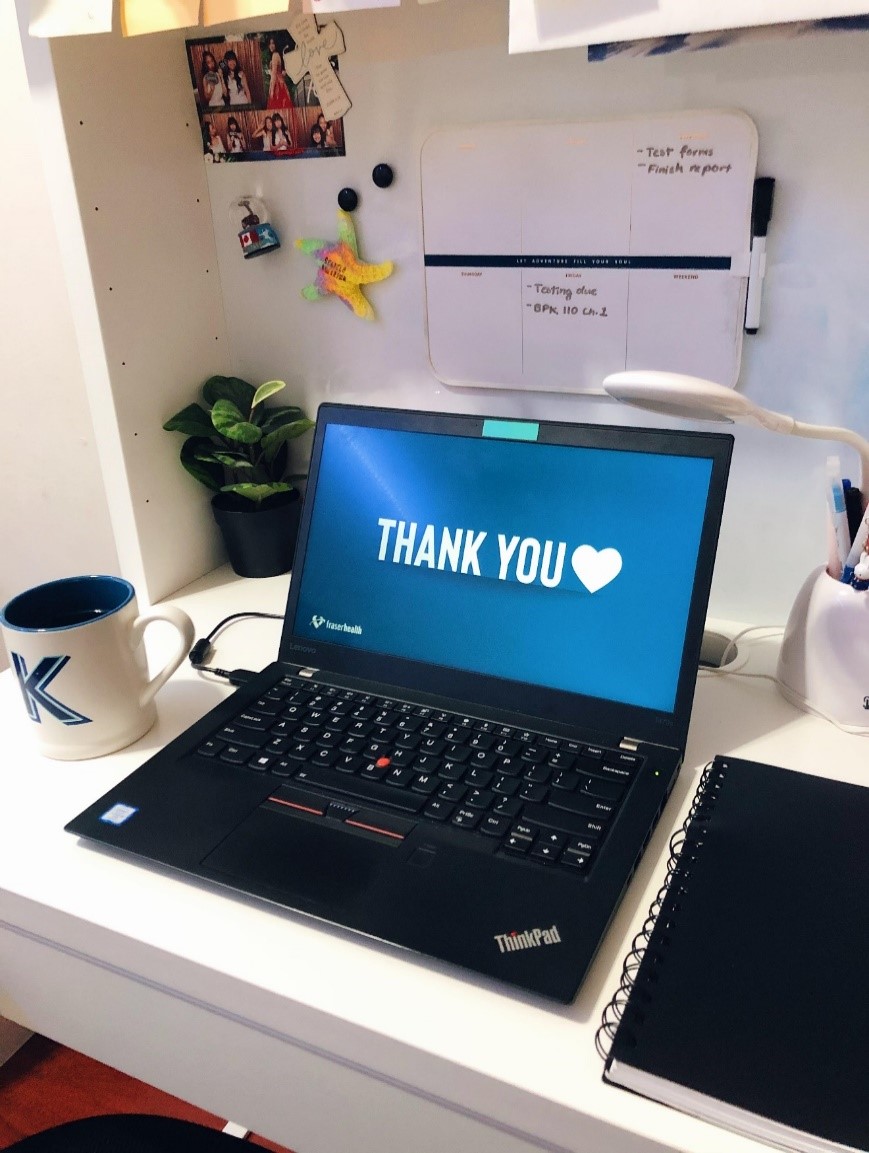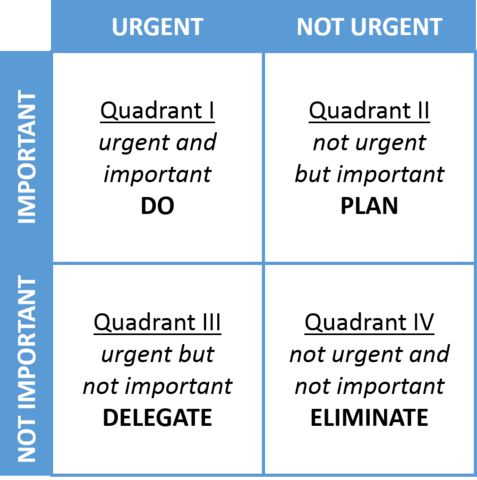
The coronavirus pandemic has changed our definition of what we used to call “normal”, causing society to introduce new ways to maintain health through social distancing, wearing masks, and frequently sanitizing and washing our hands. Furthermore, it has become increasingly inevitable that many companies start working from home to be able to keep their businesses running and most importantly, to protect the health of their employees.
Fraser Health is one of those companies that started working from home, and I am fortunate to work for them during this time. Fraser Health is a health authority whose main goal is to provide quality health care services to over 1.8 million clients in the Lower Mainland. I work for the Paris Team, which manages a healthcare information system called Paris. Paris focuses largely on community health, more specifically Home and Community Care (HCC), Mental Health and Substance Use (MHSU), and Public Health (PH). Since Paris is an electronic medical record system, these features can be accessed through our remote system on each employee’s laptop. Therefore, working from home is imperative in order to keep its employees healthy and safe during the pandemic.

Personally, as a Co-op student, working full-time at the office was already a challenge. For someone with no business background, it was a huge learning curve learning about the business side of health care. Especially, understanding the Paris system and the many features within it took some time to learn as well. Since my team transitioned to working remotely, more adjustments had to be made to work efficiently at home. Unfortunately, there are more distractions at home rather than being in the office which was a concern of mine throughout this summer semester. Trying to stay focused on my tasks became an issue throughout the work term which did hinder my productivity. However, as my work term at Fraser Health progressed, I learned different techniques to help increase my productivity throughout this pandemic, and I would like to share them with other co-op students who might be struggling with the same issue.
Here are some methods that I have personally used which helped improve my productivity working from home.
Since working remotely can limit your resources, it can become overwhelming when completing your tasks within a certain time frame. For example, being in the office facilitated communication with my coworkers and I experienced fewer connectivity issues with my computer as well. Without these resources, managing your time is imperative to prepare you for any setbacks that could occur when working remotely.
Creating a to-do list helped improve my workload management by providing me with an outline of what needs to be completed. This worked for my organization since I could focus on one task at a time rather than taking multiple tasks head-on without any preparation. I believe that a successful to-do list should be short and concise, achievable, and forgiving.
Short and Concise
To-do lists should not overburden you with long, detailed lists. Doing so creates unnecessary stress which disrupts your productivity in the long run. Instead, lists should be simple and straight to the point rather than hard to read. For example, when I am assigned to a large project at work, I separate the project into smaller tasks that are much easier to manage. In a way, it helps declutter your mind as you look at your list and helps you keep track of all the details required for you to complete a large task.
Achievable
To-do lists should be achievable which means that tasks in your list should be realistic and completed promptly. For instance, once you receive tasks with specific due dates, it is best to separate your tasks by difficulty and length of time it takes to complete them. Be mindful of the time you have so that you can efficiently optimize your time.
Forgiving
Sometimes life can get in the way which could prevent us from finishing the tasks we set for ourselves for the day. Although it can be discouraging not to finish everything on our lists, we should not beat ourselves up for it! Instead, look at what you have accomplished for the day and set a positive mindset for tomorrow.

The Eisenhower method is another useful technique to help you organize your tasks by urgency and importance. When you’re at home, it is best to organize the tasks you receive to quickly identify any activities that require more focus, as well as any tasks that need to be ignored. Additionally, it is important to organize the priority of your tasks because working on small, non-urgent tasks could create a false sense of productiveness. While we work with urgent issues, we can work toward important, longer-term goals rather than non-urgent tasks that could be finished much later. The image below describes how to organize the Eisenhower method by their urgency and their importance.
Working remotely comes with its distractions such as updating your social media or watching TV as you work. We must stay focused throughout the workday to prevent any misinformation or mistakes that could occur. The Pomodoro technique is a helpful technique introduced to me by my supervisor. It is a time management method that helps you measure your time and your efforts by utilizing time intervals when performing tasks. Basically, you work in 25-minute sessions, called Pomodoro sessions, followed by 5-minute breaks. Once you do 4 Pomodoro sessions, you take a longer break (about 15 to 30 minutes). Its main goal is to establish a consistent habit of productivity by improving your focus which can be helpful for people who easily get distracted especially for those who have many distractions at home.
Working from home can be a challenge for many individuals. However, overtime you learn to grow in so many ways. For example, personally, my communication skills have improved significantly along with my self-discipline and self-awareness. Overall, what matters the most is having that mindset that you can overcome these challenges. Just remember, that we are currently experiencing a pandemic and that we need to take things one step at a time.
References
Cirillo, F. (n.d.). The Pomodoro technique. Retrieved from: https://francescocirillo.com/pages/pomodoro-technique
Oppong, T. (2017). The Eisenhower method for taking action. Retrieved from: https://medium.com/the-mission/the-eisenhower-method-for-taking-action-…
About Fraser Health. (n.d.). Retrieved April 3, 2020, from: https://www.fraserhealth.ca/about-us/about-fraser-health#.Xowv6IhKgow














